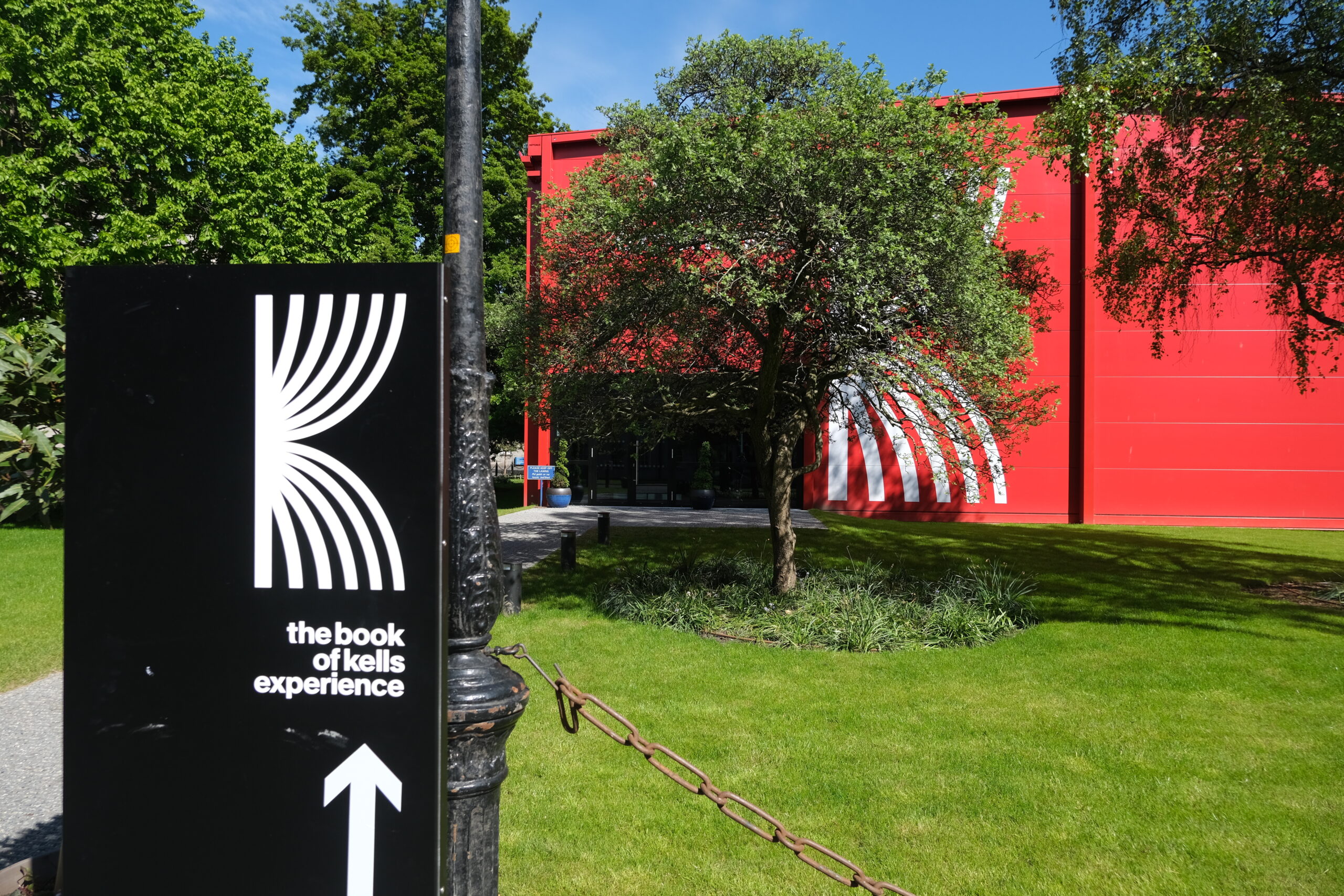Coined as a jewel of Ireland’s cultural heritage, the Book of Kells has been housed in Trinity College Dublin since 1661.
The UNESCO Memory of the World item, according to figures published by Fáilte Ireland, attracted 1,057,642 visitors in 2018.
Amidst the ongoing Trinity Boycott Divestment Sanction (TCD BDS) encampment in Fellows Square, some have questioned why the “national treasure” is not in a national museum or still in its namesake town?
So why exactly is the Book of Kells in the possession of Trinity College Dublin?
Creation of the book
Dating back to roughly 800 AD, the Book of Kells was painted by three unnamed monks who translated the gospels of Matthew, Mark, Luke and John into Latin.
Despite its name, the Book of Kells did not originate in the Meath town. The general consensus among scholars is that it was created in an abbey in Iona, a small island off the west coast of Scotland.
Following Viking raids on Iona in 806 AD, several monks fled to the Abbey of Kells in County Meath, bringing the Book of Kells with it.
The Book of Kells remained in the abbey during the later mediaeval and early modern periods before it was given to College.
Moving the Book of Kells
In the 1650s, the book was moved from Kells to Dublin when Oliver Cromwell’s army quartered at the abbey.
It wasn’t until 1661, however, that Bishop of Meath and Vice-Chancellor of College Henry Jones presented the Book of Kells and the Book of Durrow to College.
The book was first studied for its biblical content by Trinity until it went on display for the public in the Old Library from the 19th century onwards.
The Book of Kells in Trinity
The book has generated significant revenue for College since putting it on public display.
In 2019, the Book of Kells brought in €12.7 million in revenue for College, although ticket prices to view the book have increased significantly since then.
Based on the €214k fine issued to Trinity College Dublin Students’ Union (TCDSU) for lost revenue due to disruptive protests, College makes approximately €42k per day from the Book of Kells, equating to around €15 million a year.
Entering the Old Library and viewing the Book of Kells cost €25 per adult, while student and senior tickets come in at €20.
In 2019, family tickets cost €28 while today a family ticket comes in at €65, an increase of 132%.
While College continues to make significant earnings from the historical book, those in Kells have campaigned to return the book to its namesake.
Residents believe that housing the ancient book could draw further tourism to the town of Kells.
In 2011, College refused the town’s request, claiming: “The preservation, safety and security of the manuscript are paramount in relation to requests for loan received by Trinity College.’’
“Over the years, it has received requests from highly reputable cultural institutions both nationally and internationally for its loan.
“Since the year 2000, it has been the policy of the Board of Trinity College on the grounds of security, environmental and preservation concerns to decline such requests.
“The College regrets the disappointment that this decision may cause, however the preservation of this unique and fragile manuscript must, however, take priority over all other considerations”.
Local resident and campanger Ronnie McGrane has been vocal in his desire for the Book of Kells to be returned to namesake.
Speaking on Newstalk following September’s blockade of the Old Library by TCDSU, McGrane said: “We need the Book of Kells back in Kells because it was stolen in 1640 by… Henry Jones”.
“He didn’t ask to bring it for safe keeping, he took it,” he said. “We’d like it back so we’d have more footfall here of tourists.”
The Book of Durrow has been loaned out by College on several occasions, such as in 2018 when it was loaned to the British Library as part of their Anglo Saxon Kingdoms: Art, Word, War exhibition.
It was also loaned to the British Library in 1961 and was exhibited across Europe in 1984 as part of the Treasures of Ireland exhibition.
The current encampment at the Book of Kells began last Friday at 8.30pm in Fellows Square when approximately 60 students set up tents.
Numbers at the encampment have since risen to over 100 with over 70 tents pitched.
The protesters are calling on College to cut its ties to Israeli institutions such as Tel Aviv University.






